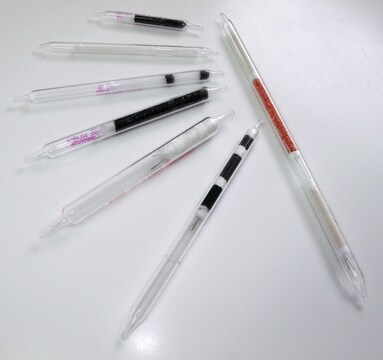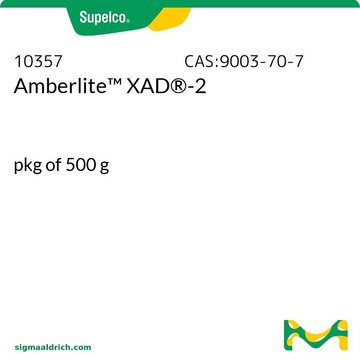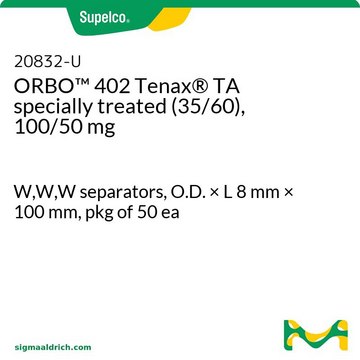20254-U
Tube ORBO™ Carbotrap®
W,W,W separators, O.D. × L 6 mm × 70 mm, pkg of 25 ea
Synonyme(s) :
ORBO™ Carbotrap® Tube
About This Item
Produits recommandés
Matériaux
W,W,W separators
Gamme de produits
ORBO™
Composition
Bed A, 100 mg
Bed B, 50 mg
Conditionnement
pkg of 25 ea
Fabricant/nom de marque
ORBO™ 101
Technique(s)
active air sampling: suitable
D.E. × L
6 mm × 70 mm
Matrice
Carbotrap® B Graphitized Carbon Black (GCB) (20/40)
Taille des particules
20-40 mesh
Application(s)
air monitoring
environmental
industrial hygiene
Vous recherchez des produits similaires ? Visite Guide de comparaison des produits
Description générale
Informations légales
Code de la classe de stockage
11 - Combustible Solids
Classe de danger pour l'eau (WGK)
nwg
Point d'éclair (°F)
Not applicable
Point d'éclair (°C)
Not applicable
Faites votre choix parmi les versions les plus récentes :
Certificats d'analyse (COA)
Désolés, nous n'avons pas de COA pour ce produit disponible en ligne pour le moment.
Si vous avez besoin d'assistance, veuillez contacter Service Clients
Déjà en possession de ce produit ?
Retrouvez la documentation relative aux produits que vous avez récemment achetés dans la Bibliothèque de documents.
Notre équipe de scientifiques dispose d'une expérience dans tous les secteurs de la recherche, notamment en sciences de la vie, science des matériaux, synthèse chimique, chromatographie, analyse et dans de nombreux autres domaines..
Contacter notre Service technique





